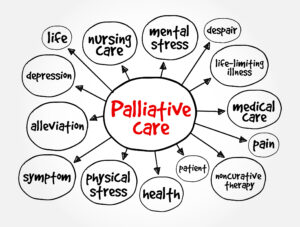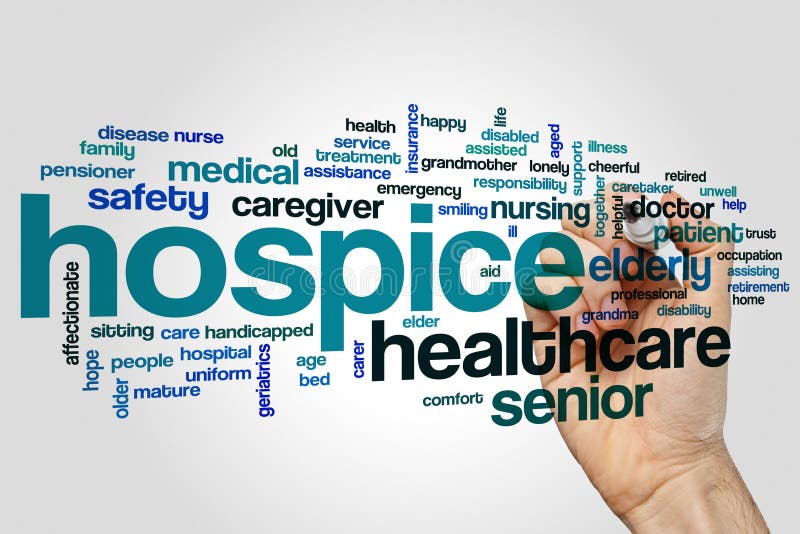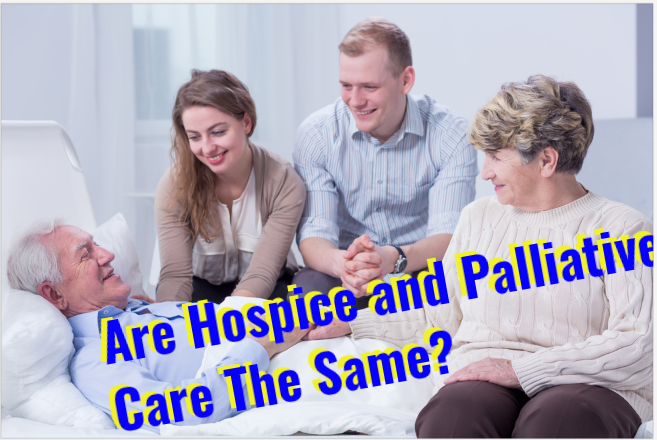Contents
Understand: Are Hospice and Palliative Care The Same?
Despite having a lot of similarities, hospice and palliative care are not the same. Many people get confused when deciding between hospice and palliative care because of their interchangeable use. So, it is essential to understand the most significant differences between these two.
It is common to get confused when considering the differences between hospice and palliative care. Even though both have a lot in common, it is necessary to understand the key differences to make an informed decision for your loved ones.
Both care plans address the social, emotional, and spiritual needs of patients and their families. In case of a severe illness, they help to relieve pain. In other words, you can say that hospice is a type of palliative care for people with life-limiting conditions.
One of the critical differences between hospice and palliative care is hospice care is short term and starts after a medical examination suggests that you or your loved one have only a few months to live. On the flip, palliative care can start at any stage of a severe illness.
So, are hospice and palliative care the same?
Let’s discuss both terms in detail.
What is Palliative Care
 Palliative care is a term for specialized medical care for those suffering from a severe illness, such as heart disease or cancer. Patients that are getting palliative care may also get medical treatment to relieve pain and cure their illness. The emphasis of both hospice and palliative care is to enhance a patient’s current care while enhancing the life quality for both the patient and their families.
Palliative care is a term for specialized medical care for those suffering from a severe illness, such as heart disease or cancer. Patients that are getting palliative care may also get medical treatment to relieve pain and cure their illness. The emphasis of both hospice and palliative care is to enhance a patient’s current care while enhancing the life quality for both the patient and their families.
For the majority of people, it isn’t very comforting to get referred for palliative care. However, it doesn’t mean to end life care. Unlike hospice care, if you are referred for palliative care by your GP, you don’t have to stop getting treatment to cure or slow down your illness progress.
The primary emphasis of palliative care is to improve the quality of your life and alleviate the symptoms. It means, unlike a traditional treatment that focuses on curing the illness, palliative care helps and encourage you to live a whole life while you are battling against a life-threatening disease.
The term not only manages symptoms and relieve pain but, also offer holistic support. Moreover, grief counselling, psychological support, and cultural support are also a part of palliative care.
Benefits of Palliative Care
One of the most significant benefits of palliative care is that it improves the quality of life. Even if you are getting it as end-of-life care, palliative care can help you live a life you are experiencing to its fullest. The main emphasis of palliative care is to make a patient’s life as comfortable as possible. Some other significant benefits of palliative care include:
- Palliative care minimizes disease symptoms. It helps alleviate pain, fatigue, nausea, and other symptoms, which help reduce the suffering caused by illness to make you comfortable enjoying activities and spending quality time with your family.
- It also offers spiritual, emotional, social support, which means you can get the care and pastoral support from a religious member. Additionally, you may also get education, counselling, and narrative therapy. What’s more, it also offer holistic support for your loved ones, which includes both psychological and physical support.
- Palliative care also offers that extra layer of support to patients and their families when needed.
- It enables healthcare professionals and patients to engage in advance care planning.
- When undergoing palliative care, patients desires and goals are the topmost priority.
How to Get Palliative Care
You are eligible for palliative care if you are suffering from a long-term, incurable disease. If your illness is limiting the quality of life, you are eligible to get palliative care. You can get palliative care by simply getting a referral from your doctor or a healthcare provider.
Generally, palliative care is included in Medicare, and you don’t have to pay for it (except fee and some other particular services). Moreover, if you wish to get palliative care at home, you have to pay for nursing staff and other specialized equipment.
What is Hospice Care
Battling with the life-limiting disease, people prefer to choose hospice care at the end of life. The term emphasizes the comfort, care, and quality of life of a patient with a severe illness. However, at some point, it may go out of control to cure the disease, or a patient may choose not to undergo a specific treatment, and this is why hospice care is designed.
The patient receiving hospice care understands that their illness isn’t responding to any medical treatment to cure or slow its speed. Though both hospice and palliative care offer complete comfort while also providing support to the patient family, in hospice care, attempts to cure or slow the progress of the disease are stopped.
Moreover, hospice care is for people with a terminal illness who have only a few months to live. So, it is essential to discuss hospice options with your doctor. Some people do not start hospice at the right time and miss the advantages that hospice care offers. This is why it is essential to begin hospice early for yourself or your loved ones battling with a severe illness to get meaningful care.
Benefits of Hospice Care
When undergoing hospice care, it may feel like there is little or no hope at all for the patient. Although the options may extend when it comes to life-saving measures, there are still chances that patient and their close ones enjoy the best possible life. Here are some significant benefits of hospice care:
Improved Quality of Life
As a patient with a life-limiting illness, a patient or his family members visits the hospital or oncologist more frequently. These frequent visits can physically, emotionally, and mentally exhaust the patient and their family. However, when in hospice care, there is no need to make these frequent visits. Hospice care includes a team of hospice care specialist doctors and nurses for your loved ones. Choosing hospice care offers a tremendously improved quality of life.
Relief From Pain
Having a terminal illness makes life more painful because the pain can increase with each stage of the disease. By the time when there is no hope to cure the illness; the pain can become brutal. Hospice care is designed to relieve the pain and make the patient’s remaining days as comfortable as possible.
Staying at a hospice centre provide patients access to hospice care specialists to ensure the patient is at ease both physically and mentally.
Well-Trained Staff
At a hospice care facility, you will get a well-trained staff that knows how to handle you or your loved ones with a life-limiting illness. Hospice care specialists can keep the patient suffering from a terminal illness at ease. Moreover, receiving hospice care also ensures that you have easy access to doctors, nurses, social workers, and other healthcare specialists who know how to keep you or your loved ones comfortable during their hard times.
Spiritual Support
If a patient has spiritual beliefs, you should know that almost all hospice care facilities have a team of religious teachers and counsellors who provide spiritual or religious support. It is a fantastic benefit during hospice care.
Emotional Support
Having a terminal illness affects both the patient and their family members. For some, they have to figure out what should be done day by day. However, with hospice care, you will get assistance from healthcare professionals and financial planners to keep you and your dear ones at ease during this devastating time.
How to Get Hospice Care
You can inquire about hospice care services by phone or by visiting a local hospice care facility. The hospice care staff will consult with a physician to determine whether referring you or your loved ones is appropriate. Moreover, you can also directly consult with your doctor and ask them to make a referral to hospice.
Unlike palliative care, hospice care costs are covered by private insurance, Medicare, and Medicaid. Moreover, Medicare hospice care also includes medical equipment, pharmaceuticals, social services, nursing, 24/7 access, grief support, and more.
Differences Between Hospice and Palliative Care
One of the significant differences between hospice and palliative care is their availability. Palliative care can be started anytime. It doesn’t depend on the stage of disease or whether you are getting life-prolonging or curative treatments.
On the other hand, hospice care is available only when curing an illness is no longer an option or when someone stops getting life-prolonging treatments. Some other significant differences between hospice and palliative care are given below:
| Palliative Care | Hospice Care |
| Palliative care is for people with a severe long-term illness and no matter what the disease stage is. It offers symptom relief while also facilitating making an informed medical treatment decision. Palliative care provides spiritual, emotional, and financial support. You can still get curative or life-prolonging treatments. The team include a specialist palliative care doctor, health care professionals, social workers, etc. Palliative care is sometimes available at home, but it depends where you live. Most often, it is offered outpatient clinics or a hospital. The duration of getting palliative care depends on your insurance coverage. You can start it anytime, regardless of the stage of the disease. | Hospice care is for patients with a terminal disease and who has only a few months to live. It offers symptom relief while also facilitating in making end-of-life decisions. The term offers spiritual, emotional, and financial support. In order to be eligible for hospice care, a patient is required to stop getting curative or life-prolonging treatments. The team includes doctors specializing in hospice care, healthcare professionals, pharmacists, social workers, etc. Hospice care is offered through a hospital, assisted-living facility, a nursing home, or at your home. |
How to Decide Between Hospice and Palliative Care
Choosing between hospice and palliative care is not easy. So, it is essential to discuss your options to make an informed decision. However, according to research, starting hospice and palliative care on time can be more effective. When deciding between hospice and palliative care, the following points will make things easier for you.
· The Stage of Illness
Palliative care is available as soon as a life-threatening illness is diagnosed, but hospice care isn’t until your doctor evaluates a timeline. A person may get palliative care for years before going to the hospice. In some cases, a person may also recover from the illness during palliative care. But, it involves various factors, including disease and prognosis.
· Consult with Your Doctor
It is essential to consult with your doctor for a prognosis. Regardless of how experienced your doctor is, they cannot be definitive. However, they can provide you with an estimate. Moreover, your doctor may also outline some ways that can help you.
· Life-Prolonging or Curative Treatments
While getting palliative care, you can still undergo curative or life-prolonging treatments. However, you have to stop all other medical treatments for hospice care to prolong the life or slow down the disease progress.
It is the most challenging decision you have to make, which may take a lot of time and reflection. So, it is essential to talk with your doctor, family, or counsellor that can help you to make an informed decision. However, if you are not ready to stop all other medical treatments, palliative care is the best option for you.
· Where You Live
When deciding between hospice and palliative care, you have to consider where you live before deciding. This is because palliative care is often offered through a hospital or clinic, while hospice care can be offered at home.
The Bottom Line
That is all about hospice and palliative care. If you or your loved one is diagnosed with a life-limiting, long-term disease, you can go for palliative care. In comparison, you or your loved ones are eligible for hospice care if you suffer from a terminal illness or have only a few months to live. Moreover, it is wise to consult with your doctor and family to decide which type of care is appropriate for you.
Read More
Care for Elderly Parents in Your Home
Loving Care for Elderly Parents
Make a Care Plan for Dementia Patients






